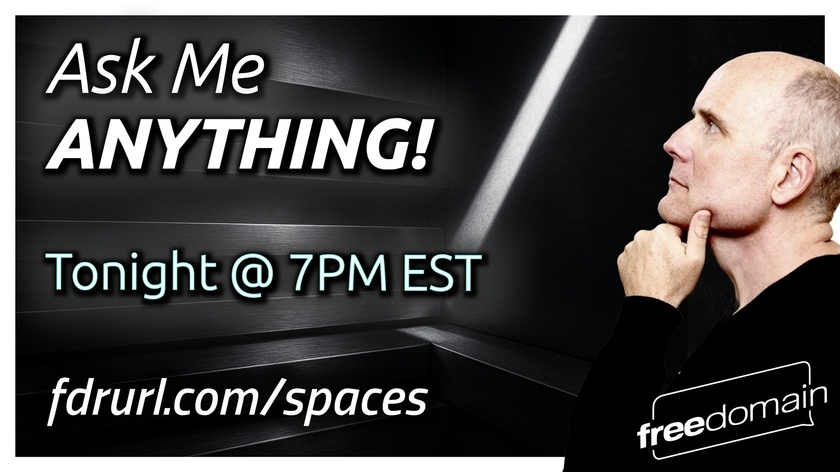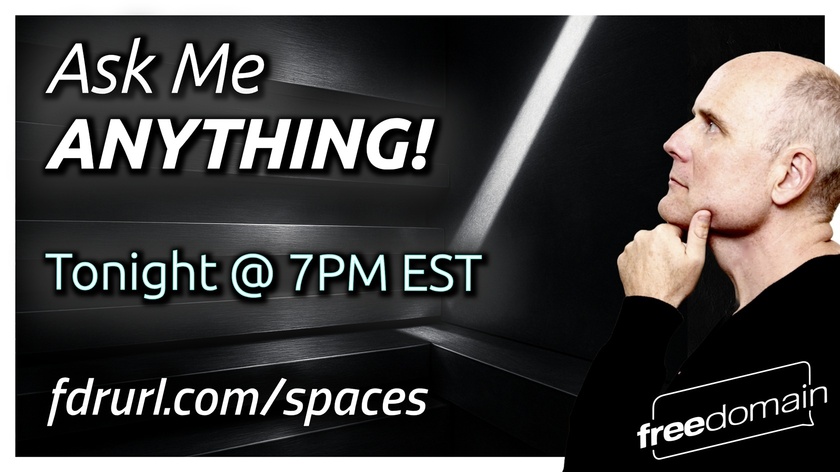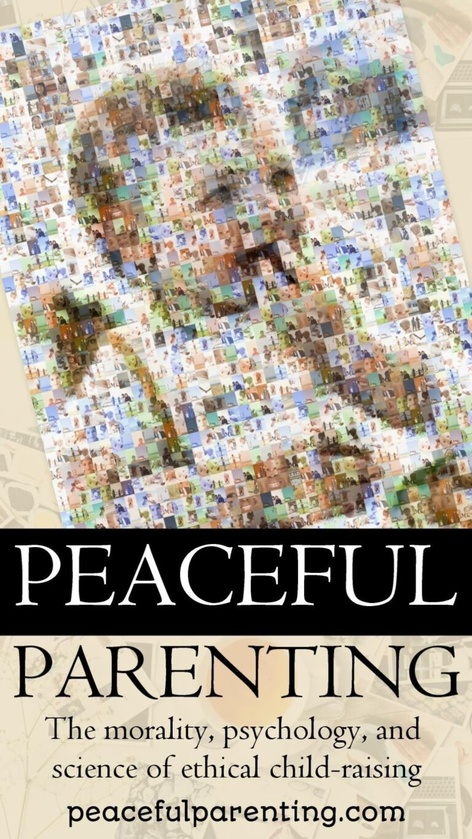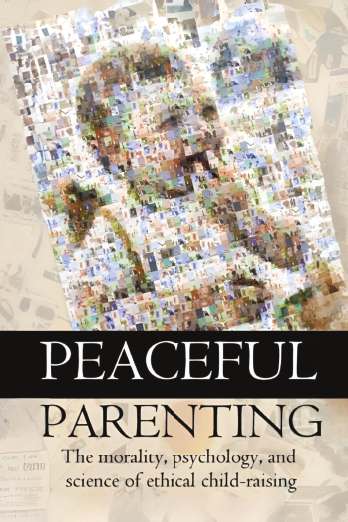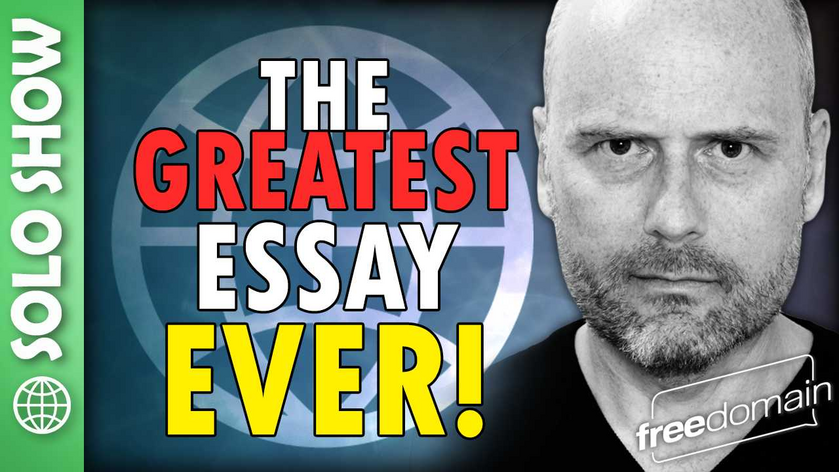February 22, 1992 5:45pm
(Names are changed)
Well, Jake has returned to Toronto, and as usual, spending time with Jake, Gerald and Rich has worked my brain beyond the stratosphere. Last night we dove into the qualitative differences between man and animals in terms of biological evolution (my argument: in animals, specialty equals vulnerability; in humans, it equals adaptability), today Gerald, Jake and I went into the failures of rationalism to answer the “why's” of life (as in why am I here etc.); my conclusion was that such questions are by definition unanswerable, and all attempts to answer them (i.e. religion, romanticism) are simply metaphors for ignorance. The rationalist cannot provide answers for the mystic; the rationalist limits his questions to what can be answered, i.e. refuses to wank his time off with pointless issues. It is essentially childish to run around crying “why did this happen to me?”; since the question is unanswerable beyond physical and psychological cause and effect, the purpose is not to achieve anything positive, but rather to wallow in self-pity. Any answer gained is a lie, since there are no answers; part of virtue lies in the courage to accept this.
But can this happen?, Gerald asked. Can people actually give up these questions? I argued that Christianity precedes these questions; by positing a schema of fate and infinite control, Christianity creates the contradiction of cause and effect that underlies the question of why bad things happen to good people; it requires the imposition of the polarities of supernatural conflict. The question of why an infinite God allows evil cannot be answered -- the question of “why?” proceeds from the axiom of faith. A true atheist (and even the term posits a man against religion, and so is unsatisfactory, say instead rationalist) only asks these questions as a result of a failure of discipline. But I'm quite tired -- I shall have to continue this later. (Feb 22)
February 23, 1992
To continue (aided by a day's worth study of the history of evil), the difficulty of evil in the face of infinite good requires the unbalancing of either fate or responsibility. The Christians denied fate, deeming that man has free will only so far as he resists evil. Due to original sin, man was powerless to create good -- his free will was only whether or not he chose God (indeed, if he could make the good, rather than just choose it, God would have become redundant -- remember Luther), and this is Christianity's sole redeeming factor. Fate requires the abdication of will and the repudiation of desire, since only by resisting all machinations can one become free of inevitable evil. In other words, virtue in the face of fate means the renunciation of fate -- and thereby action. In this lies the other-worldliness of Buddhism (a strange advocation of Nietzsche's that requires further study). The conflict inherent in Christianity (that of free will versus an omniscient deity) is the contradiction of any ethos that unites the finite and the infinite. The co-existence of infinite power and secular evil requires that the blame be shifted to humanity, which is why Satan was only granted the power to tempt. (Buddhism attempts to shift this responsibility to reality itself, but that is just hedging the issue, for why should infinite good create an evil reality?) If the responsibility for chance evil is on man alone, then perfection is impossible, for man cannot reject man. If the responsibility resides in reality, then perfection (i.e. Nirvana) is possible through the rejection of reality itself. The existence of evil in the secular requires either the damning of man or the rejection of the secular -- both justifications are required for the existence of infinite good. The lament of Job, that he can neither question God nor discover his reasons, stems from the further contradiction (inherent in the aforementioned one) of omniscience with judgment. The “tests of love” so common in the Bible are the demands of a neurotically insecure God -- Satan taunts God that Job is virtuous because of his good fortune, so God allows him to curse Job to prove his love. Yet surely God already knows the outcome, making both the curse and the judgment grossly redundant. The dissolution of cause and effect inherent in the concept of infinite good renders judgments automatically retroactive -- not to mention that God must have created man in order to watch him sin, out of curiosity about evil. The response that Adam created the possibility of sin is unsatisfactory, since God also created Adam (not to mention the serpent). In many ways Satan is present in Eden in the form of God -- otherwise why would infinite good be concerned that his worshippers had discovered the difference between good and evil? Surely only evil fears such knowledge. His fear is that of the insecure parent as his children begin to reach the age of reason; the fear of independence, of rational evaluation. Only the insecure parent fears wisdom; the good parent welcomes the transition from obedience to appreciation. Satan's promise to Eve that she would become as God, i.e. gain the ability to judge, is precisely what God fears: the terror of independence inherent in any imposed paternalism. Yet God could not lose, for Eve was seduced by her desire to become Him, not to achieve humanity. One cannot beat God; there is no question of “winning”. To walk away from such impotence is the only victory.
February 24, 1992
I'm beginning to see what that crafty bastard is up to. The “will to power” is not one of domination; it is the will to accept the power of Man. A man is not elevated by enslaving his inferiors; like the liar he becomes an appreciation only of the inadequate. The ubermensch is the post-Christian man; Nietzsche was smart enough to recognize that such an apparition might be a long time coming. “Beyond good and evil” is similar to the positivists; it means beyond heaven and hell. His flaw is a step above the Romantics; they said discipline was deific and bourgeois while Nietzsche says discipline is the essence, the destruction of all illusions. But he shared the Romantic pitfall of destroying hierarchy along with divinity. The world is hard (something he partly ascribes to the influence of Christianity), therefore truth is hard. Man must carve his justification from his will; existence precedes essence, but still the shift is the shift of morality from God to man, without the discipline imposed by the survival principle qua reality. If morals exist, they must be derived from the principles of survival; they must be an extrapolation of the requirements of consciousness from the demands of reality and biology. The only ethical certainty is that a dead man has no morals -- what allows him to survive is the root of a moral absolute; the starting-point of any moral system is the fundamental hierarchy of life over death. From that hierarchy comes the demands of reason, self-esteem, individualism; the trinity of Ayn Rand. Nietzsche's equation of cultural sense-aristocracy with truth requires the dismissal of the masses from the pursuit of truth; similar to Plato, he defines philosophy as a refinement of certain men, a sifting of the superior from the inferior. It is ever the curse of learning to generate complexity for the sake of aristocracy, but for the moral principle to be valid it must be valid for all; else it must be enforced by totalitarianism or diluted in democracy. The ubermensch is Nietzsche's desire for man to rise to an aristocratic philosophy, just as communism is the desire for philosophy to become democratic in the face of Christianity's history of self-destruction, which is to infuse it with the lowest common denominator, the anti-life, the average. As is common with all opponents of Christianity, they take the moral stature of man as defined by the ecclesiastical and so say to hell with him, he is worthless -- but surely it is better to posit man free of religion before deciding his intrinsic worth. If religion is an aberration, then Nietzsche is judging the prevalence of health in the terminal ward of a hospital. For a doctor to say that man is unfit in the midst of a plague is a failure of conceptualization -- even if the sickness has lasted for two thousand years. To change the habits of illness one must picture general health, only then can one provide men the means to health, which means to grant them the possibility of power, of virtue, of rationality. Christianity attacks the mind -- is it freedom to attack men in general for their stupid-ity? No, it is the act of the devil to curse man for his addiction to God. It is simply another form of the addiction, like a reformed alcoholic who devotes himself to the drunken and so calls all men weak. How much more productive to explain the power of abstinence than curse the exist-ence of drink -- if one truly wants to end the addiction, one must tackle the problem and ignore its manifestation, otherwise one grants the spotlight to the enemy. (It may be so that by writing thus I fall prey to what I condemn, but that is because I am still pulling one foot from the hospital. When I am in the fields, I will see only the fields.)
February 25, 1992
Just spent the day on 17th century economics, and broke out in a sweat as an idea hit me, an idea that ties many things in a unified whole. The Satanic is as much an aspect of economics as it is of art and politics. The unity of the world-views of Marxism and Christianity should have tipped me off, but the focus on the ethics rather than the myth-similarity blinded me to it.
The unsung heroes of history -- unsung because they were unrecognized even to themselves -- are the middlemen of the business world. All the important shifts in demography so hated by entrenched privilege resulted from the need for this class to maximize profit regardless of tradition. But even deeper, this very need is antithetical to the arch-conservatism which is the iron shadow cast by the unearned. The possibility of a class with a motive for change only occurred with the rise of the secularization of profits in the 17th century. The tally of Christianity, the accounting of sin was designed for the ledgers of the afterlife; the profit motive secularized is the business ethic of innovation and improvement. The innovation of the pre-industrial 17th century was largely unimportant financially -- what it did represent was an ethic that challenged, not just critically, but existentially, the ethics of entrenchment (which, properly speaking, is not an ethic, but a preservation). The response of the guilds was crucial -- they recognized the ethic long before the industrial revolution, and fought tooth and nail to preserve their hierarchy, the hierarchy of entrenchment. What they could not fight, however, was the possibility of mobility; in all ages previous, the means of production had been static; i.e. land and privilege. The essence of secular intelligence is its mobility; not just its innovation, but its location. Taxes squeeze a peasant, he submits or rebels; taxes squeeze the merchant, he shifts his business. This is the key to the rise of absolutism of the 17th century; the recognition of the state that economic growth was a hitherto-untapped resource which by its nature resisted its control -- and, furthermore, the more its was controlled, the less valuable it became (as France under Colbert discovered -- that is the source of the power of “laissez-faire” -- the only way to help us is to leave us be! -- utterly unprecedented!) Controlling religion benefited both state and church; it reinforced the power of entrenchment crucial to both by advocating the same axioms of submission -- controlling business benefited neither. This was the wedge that drove the state from the church -- the church could profit from the infighting by rejecting the secular; something neither state nor business could do. But it was a struggle both state and church were doomed to lose -- the existence of the question of causality versus privilege damns entrenchment by implication. It is fitting that despite the best efforts of state, guilds and church, the industrial revolution actually occurred. In the evolution of ethics, the most consistent ethic will always win. (The loss of the ethic of business in the 19th century is a chilling reminder of this -- the inability of capitalism to challenge entrenchment on moral grounds was the reason for the unexpected survival of religion and statism; that failure stemmed from the unconscious virtue of capitalism, its inability, like all failed revolutions, to delineate its morality qua its reason for existence, and so leaving no choice but to adopt the premises of its enemies).
The Satanic element is precisely this: Lucifer rebelled against a premise he could not defeat; he was not an atheist and never could be. Business rebelled against the state, but never developed a secular, rational philosophy -- it was doomed for its failure to unify morality with identity. Marxism completed the circle by identifying business with evil, marking it as production devoid of moral value -- which indeed it was. Traditional capitalism embodies many of the premises associated with the Satanic -- it is secular, rebellious and man-centered. It seeks satisfaction in this world, requires no reference to the divine, and requires rules derived from man's needs for survival qua reality. But most importantly, it failed to provide its justification free from the negative taint of selfishness. Is it any wonder that the association of God and the state lingered on until Marx used them to justify the salvation of man from his selfishness through the power of the state? Is it any wonder that philosophers embarked on a futile campaign to justify the market through appeal to egalitarian utilitarianism? But the market is the opposite of egalitarianism -- it derives its premises from reality, the reality that men are not created equal. Capitalism is a meritocracy (to jumble concepts) -- the only meritocracy where the benefit of the highest is the improvement of the lowest. It is anti-biological in the Darwinian sense; it creates near-unlimited resources and requires the satisfaction of others to prosper. But until those others can be satisfied by more than a material vision, the consistency of evil will always surmount it.
February 26, 1992
That's it! That's the hatred of Marx for Christ! He hated the church because it wasn't efficient enough. And he could only have written in the 19th century, the century of material progress. Here are the ethics of self-sacrifice and living for others, crowed the socialists, how can we translate them into the real world? -- how can we turn the world into an altruistic factory? Away with the delusions of the afterlife, away with the back-door of agnosticism -- let's do it here and now! Communism is Christi-anity on fast-forward, taking the abstractions of God and judgment and making them manifest, in all their gun-pointing and flag-waving, in the power of the violent state. What else could it have been but totalitarian? Individualism is man's natural state, reason his natural choice -- the demand of superior sacrifice had to be enforced; within a free society communes are possible, but an island of freedom in the face of communism sets the stage for Berlin blockades and wired walls. “We know better than you” is always the opening shot.
The danger of taking truth personally must be underlined. How many times have I heard people say: who are you to buck the trends of two thousand years, who are you, a wet-eared undergraduate, to question the greatest thinkers of mankind? But it is precisely this which must be avoided, repudiated, cut off at birth. It is the question that drove Compte and Nietzsche to their delusions of grandeur -- the question of “who am I to do this?” Schizophrenic egotism is always the result of minds untempered by reality, of questioners who take their ideas personally. The flip side is the problem of contemporary historiography -- from concepts without reference, we have devolved to references without concepts. There will be a thousand historians who say to me: there is this passage or that statistic which undermines your thesis. But moral truth is not made by mathematics, reality not defined by its reporting; truth is reason, and reason is truth. Winners write history, losers write ethics (and so the future), but it is not the position of power that defines moral validity. There are enough minds castrated enough to waddle through the backwaters of plague locations and population blips; there is no need to add myself to their number. There is no doubt that they will oppose me, but in the modern world, the presence of such opposition is a necess-ary (though not sufficient) criteria for truth.
But this begs the question -- what is history? To use the oft-worn physician metaphor, it is the record of disease and health. One does not find cures by reporting the minute progression of one patient's illness unless one is willing to extrapolate that to a negative criteria for health. The solution of illness (and most history is illness) is knowing the criteria for health, which means knowing the structure and requirements of human life. Metaphysically, historians are in the position of medieval doctors (or, worse, witch-doctors) examining the detached fingernail of a plague-ridden corpse and recording its size relative to its fellows. To heal disease we must first understand health, which for historians means to understand man. Only then can history serve its function of healing; only then can we point at the ideal trends of an age and its manifestations in law and conduct and say: this is good for man's life or this is not. Man's life is dependent on his free exercise of reason; the degree to which a society allows this is the degree to which it is conducive to human life. Those historians who deny the ultimate value of such life deny themselves the designation of healer -- but they cannot deny the criteria of healer, and so work to aid life with about the same success as the medieval doctor.
February 27, 1992 4am
There are some things morality cannot do, some things that are anathema to the advocation of the upright life (in both the ethical and biological sense). What is the prime mover of morality in the modern world? Sympathy, in a word, the concept of social work (as if life were a factory), the dangerous aftertaste of Freud. The quest for knowledge is the thirst for truth; wisdom comes from the knowledge than man is not an ocean -- he cannot drink infinitely. Truth is the establishment of criteria, and since man has a need for the absolute, the infinite, such criteria must admit of no exceptions and must be limited in order to be infinite. First problem of all moral philosophers: evil must be condemned, but never too harshly. It is a delicate balance -- condemn too savagely, and those in the position of sin will despair, and the flagellators of the soul will only reach for more. Condemn too softly, and your morality will be seen as a pleasantness to be sometimes indulged.
Evil must be seen as absolute; anything less blunts the judgment and renders good an odd generality. Evil must be clearly defined and infinitely condemned to save the good from the swamps of compromise, yet the source of evil, like all volitional decisions, must be left beyond question. Evil resides primarily in actions; the difference between wrong and evil is that of thought and action. If evil is a result of cause and effect, a Skinneristic response to social pressure and bad parenting, then good is moved by compassion to temper contempt with an over-reach of understanding. The question of why a man chooses evil is the province of psychology; philosophy does no more than identify evil (metaphysics) and condemn its existence (ethics). This is where the medical analogy breaks down -- in the fight against disease the question of contagion and the means of avoidance is crucial, yet the best it can do in many cases is lower the incidence, not cure the manifestation. For the manifestation to be cured a far greater knowledge is required, knowledge that may be swamped in the search for causes. There are some illnesses that simply occur, and like the man who searches for the psychological roots of every sneeze, the physician may take too much cause and effect as the primary cause, to the detriment of curing the effect.
This problem arises, of course, from the question that if the good were utterly beneficial, why would anyone choose evil? Surely, say the moral physicians, such an obviously destructive state must arise from causes outside the individual, who if left to his own devices should invariably choose the good. Leaving aside for the moment the problem that morality is usually seen as a bullying duty, the problem of why a man becomes evil must be encapsulated in the concept of the benefit of the good for it to be any use. If men can be convinced, say, that lying is destructive because it requires the substitution of negative value of credu-lity for positive value of integrity (and the deadly consequences for the values of the liar), the response to the man who says he prefers such a state is for the philosopher simply outright condemnation. The question of why a man would prefer such a state is irrelevant to the philosopher -- one may as well expect a physician to ask why a man would make himself ill as ask a philosopher to explain why a man would choose evil over good.
To return to the problem of destructive morality, the Christian/socialist ethic of self-sacrifice to the irrational is one reason why moralists have felt the defensive need to answer the question of the choice of evil. Since a productive life can only be lived to the exclusion of such ethics, the response of collectivist moralists has been to damn mankind for his innate evil, because he refuses to submit to his own destruction on their terms. Shorn of the power to amplify their systems through appeal to self-interest, they damned those who desired to live on this earth with original sin, bourgeois selfishness and any other epithet that saved them from having to examine their axioms and ask: why can free people not be convinced? The limitation of moral value to the criteria of self-interest provides the axioms of infinite credibility; those that choose to live for themselves need only clarification, not convincing, and those that don't need only condemnation. The moral essence of a human being can never be convinced; it can only be channeled and illuminated. To run counter to the natural desire of man for secular joy requires the imposition of a non-human (and in many cases anti-human) standard of morality; and unlike rationalism, it is a net that catches only the worst fish, the fish that prefer the net and the certainty of being eaten to the challenge of freedom in the open sea. And such men require no explanation.
February 27, 1992 2pm
Since the fall of God the question has been: how to get man up from the mud? The idea of being “special” (which seems to occur only to the mediocre) was what we relied on throughout our bloody stroll through history -- and what we inflicted on those who questioned such unearned pride is agony to recall. If racism is the desire for false self-esteem, religion was a form of racism of the species (“specism”) against itself. We are the only beings who have defined ourselves as special by virtue of what we are not -- eternal, selfless etc. But I suppose just as Southern gentlemen were forced to ivorize their women and dream of the fun blacks were having, we limited ourselves equally by opposing ourselves to our highest values. Congruent with the desire for the unearned is a sick combination of envy and embarrassment, hatred and fear, and at the very bottom, a pathetic love for the reason that will destroy the illusion of specialness. Isn't it true in all myths the fight the bad guy enjoys most is the one he will lose -- to the good guy? Dostoevsky was right: being evil is to live in an unbearable state of suspense; that is why those who say they will die for their cause are so suspect -- all they are saying is that they find living for their cause unbearable. Find a man willing to live for a cause, and you will have found a philosopher, and a man who has no desire for the ultimate unearned of martyrdom.
If mankind wants the kind of self-respect that makes for a livable life, he must first delineate exactly what it is he's supposed to respect, which means to discover the difference between himself and all other forms of life. And what is this magical difference? Surely it cannot be called reason, for even monkeys poke at bananas with poles. We share over 99% of our genes with chimpanzees, and they have learned sign-language, so it cannot be genetic or communicative. For the difference to encompass all the demands of law, philosophy and society it must be distinctly quantitative; a mere qualitative difference would never satisfy the justified vanity of man, or describe the differences visible to the average stroller in a city.
Ants practice agriculture; they bring certain manures into their hills and plant fungus within, taking the food to the queen upon maturation. But the difference is in the word chosen, and I have chosen the wrong one. Ants do not practice agriculture, they perform agriculture, not as a trick (for a trick is a deviation) nor as habit (for the habit is the pattern of past choice), but as behaviour independent of perceptual reality. Take away the manure of fungus they use, and they are utterly at a loss; they cannot discover substitutes. Man, however, can. How? What is the difference? The difference lies in the nature of the information and how it is transmitted. Biological information requires the passage of generations for transmission; it can never effect a qualitative change. All varieties of life are variations on the theme of carbon-based life, reacting to changes in mutations and the environment it inhabits. The essence of biological life is dependent on the environment, and independent of perceptual reality. If a tool is present, it can be used, but it can never be created or transferred. To return to the monkeys, they will use the pole if it is present and no other means to the fruit is possible, but they will never find alternatives in the face of plenty or the absence of poles. Obviously, then, the power of mankind, the qualitative difference lies in his ability to conceptualize, which means his ability to derive information from information. Conceptualization provides another reality to man, which is the possibilities of objective reality. For example, take the word “concept” -- it means the identification of non-biological information independent of perceptual reality. The easiest concept to identify in these terms (which does not mean it is the best concept) is the concept of “God”. God is certainly non-biological information derived without reference to the senses, and this is one reason why, before the advent of rational philosophy, man united his sense of worth with his concept of the divine. What would have been more accurate would have been to unite it with both his ability to conceive of the divine and his need to do so. God was a stop-gap method to prevent the mind from emptying itself down a hole of bottomless ignorance; the problem was that as a certain group derived the benefits of ignorance it chained the rest in the kindergarten prison of institutional religion. One tourniquets a wound in order to get to the hospital; religion tourniqued the wounds of ignorance in defiance of the hospital, it made the whole world a hospital and denied the possibility of health. But all credit must go to Christianity for saving the possibility of concepts and raising man's mind from the mire (remembering that the early Britons, for instance, accepted Christianity because it gave a purpose to existence other than survival and brutality). However, unless we being to realize that Christianity devoted itself to concepts and so ensured its own demise, we shall never be able to pull our vision of man's greatness out of the modern muck. While concepts exist independent of the senses, those that derive their principles from the rationality of perceptual reality can achieve infinitely greater integrity by rejecting contradictions as impossible. When we learn to thank religion and lay it to rest for a job well done and turn our faces to the bright light of reason (both within and without us), then we shall have truly sung the praises of God, as every child does by leaving its parents and finding his or her own path free of rules derived from the demands of ignorance. In short: we pretended to know, but now we know better.

